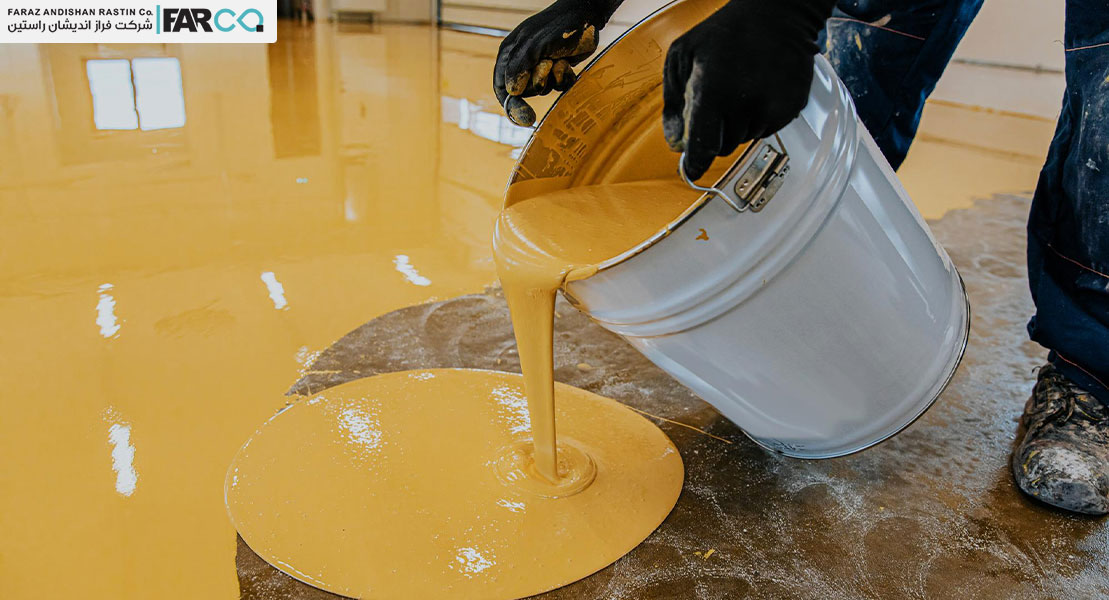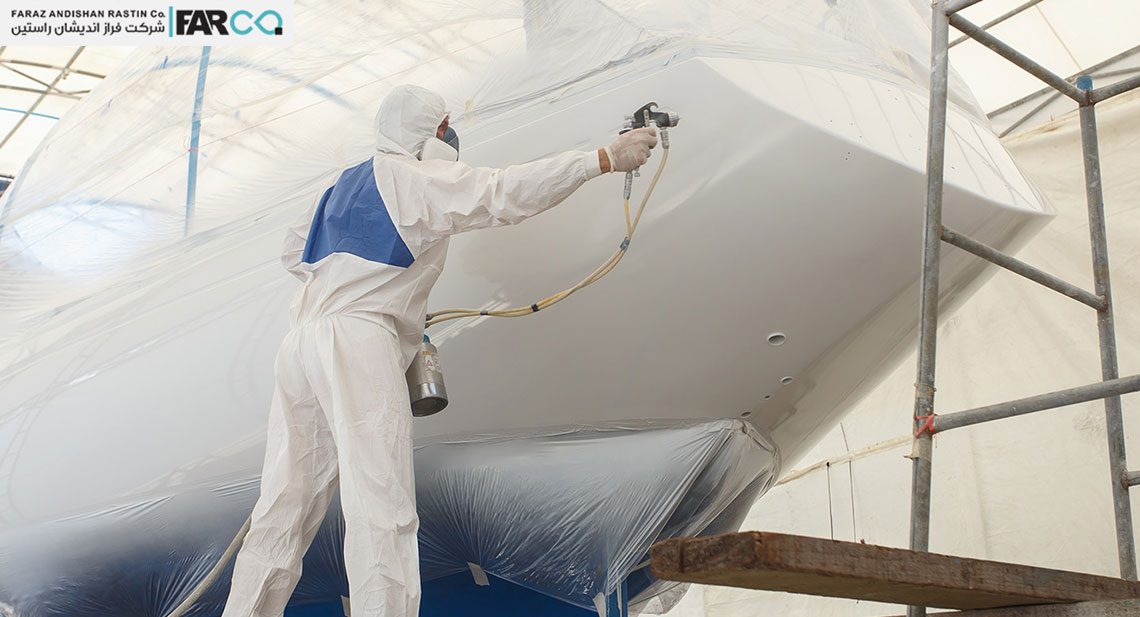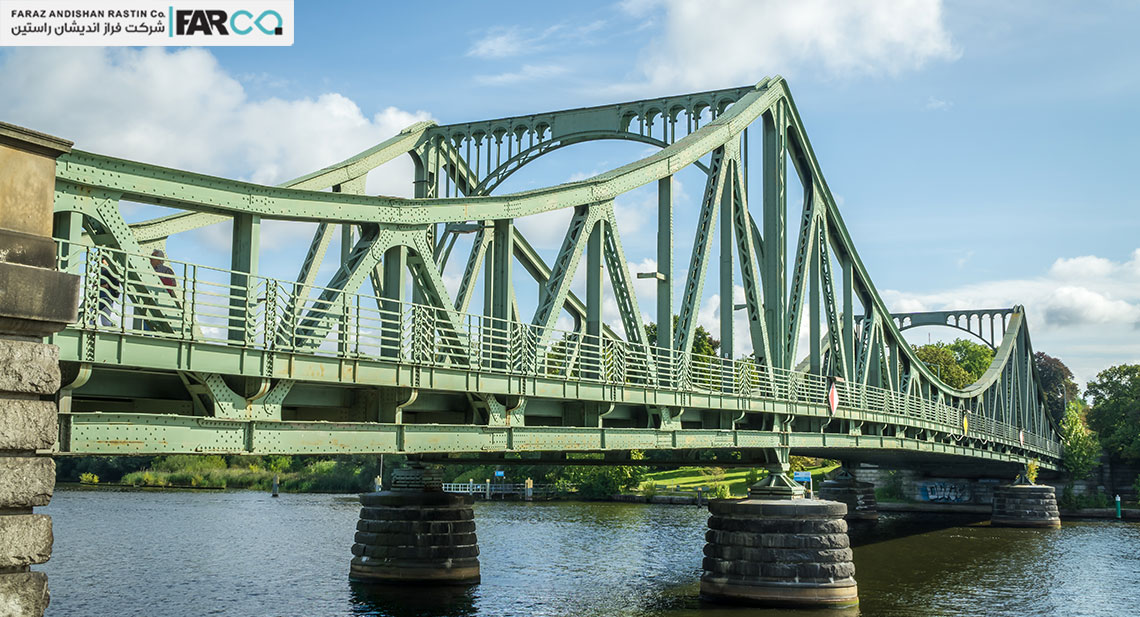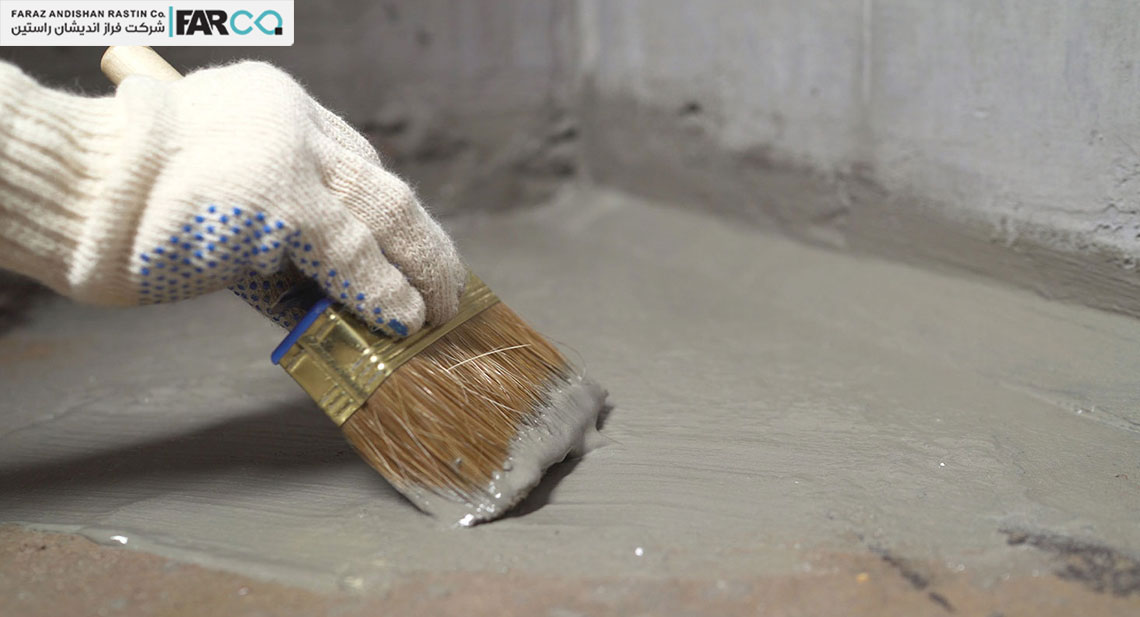
Epoxy is a type of polymer material that begins as a liquid and converted to a solid state through a controlled chemical reacon. Because of this change in state, epoxy floor coang are typically a mechanically strong and chemically resistant type of flooring. Epoxy floor coangs are highly adhesive during the conversion from liquid to solid allowing them to create secure bond with both new and old concrete flooring surfaces.
There are a wide variety of applicaon and uses for epoxy coang including epoxy floor paint in commercial and
industrial seng as well as for coang on industrial equipment or machinery. Epoxy floor coang can also be used as vapor barriers over concrete slabs and foundaons in new construcon.
Epoxy floor coang are typically comprised of two main components, resins and hardeners. The resin component in
an epoxy floor coang is light or clear in color and nearly odor free. Hardeners on other hand are dark and have a strong characterisc “ammonia-like” smell. When these two components are mixed together during the epoxy floor coang applicaon process, a chemical reacon begins. this chemical reacon turns the epoxy floor coang into tough, rigid and plasc-like materials, which are very durable , waterproof and chemically resistant.
The epoxy floor coang process is typically done by applying the coang using a roller. This applicaon is best when
performed by experienced floor coang professionals to ensure proper applicaon and durability.
The Industry is used in pharmaceucal, food, dairy, hygienic, light and heavy industry , oil, gas, petrochemical and water and waste factories as well as parking lots and commercial building
According to DIN and EN518 Germany standards the minimum appropriate thickness for industrial purposes 0.5 mm.







